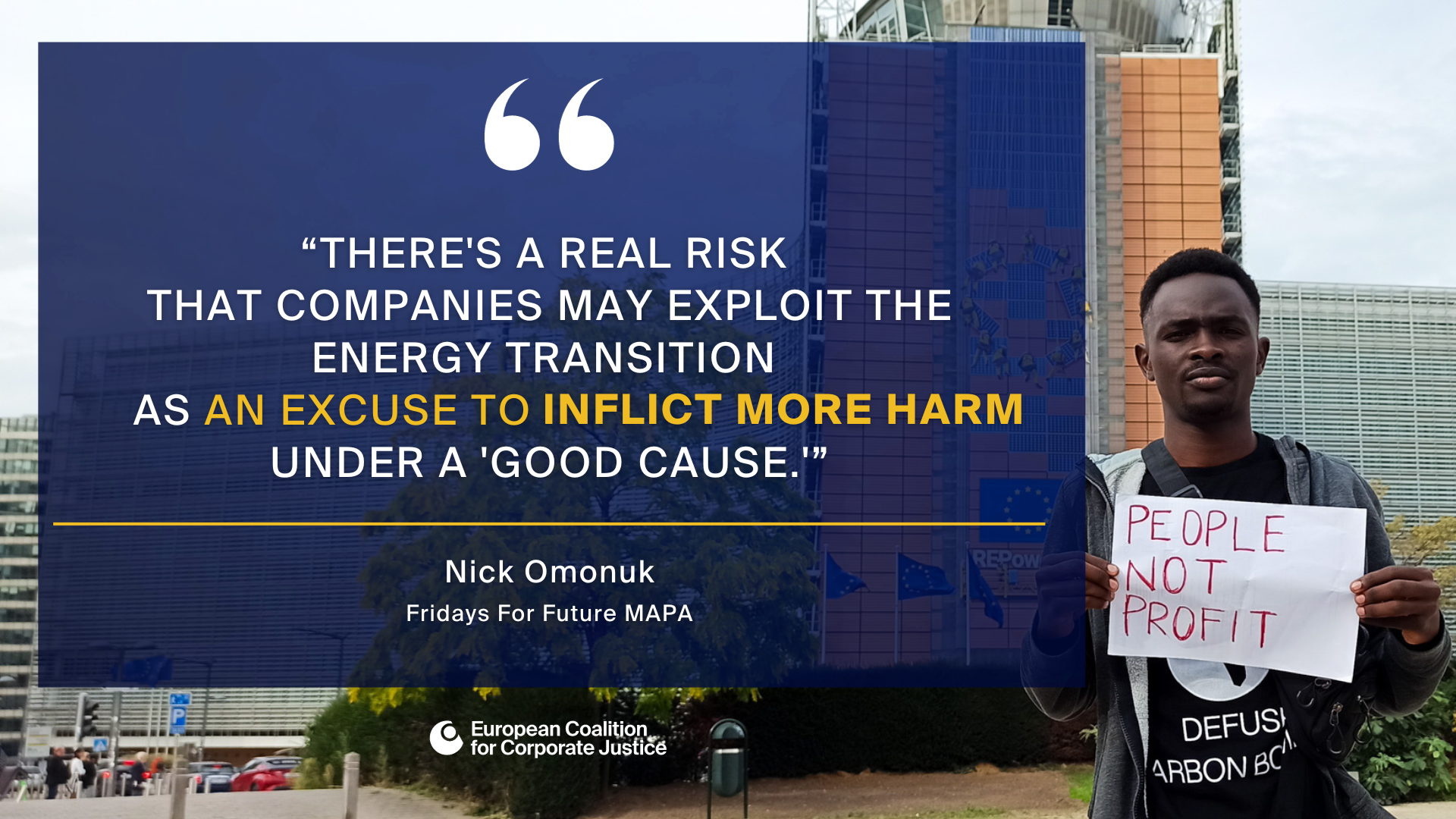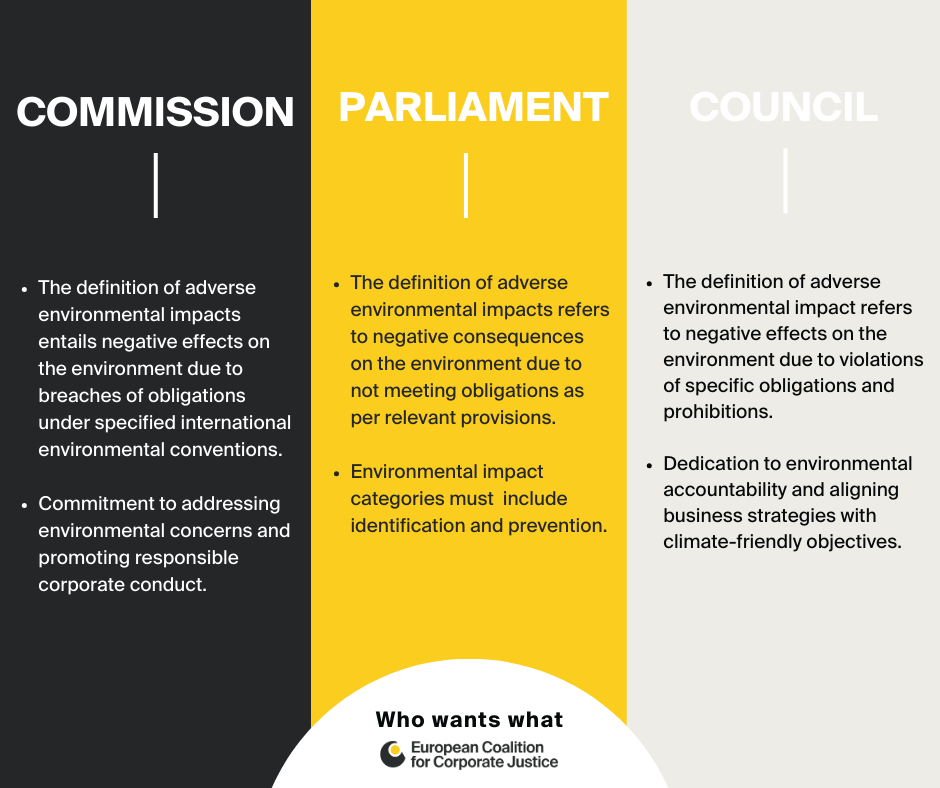This website uses cookies so that we can provide you with the best user experience possible. Cookie information is stored in your browser and performs functions such as recognising you when you return to our website and helping our team to understand which sections of the website you find most interesting and useful.

You enter your regular grocery store looking for your basics for the week ahead. Since last year, you have started checking the list of ingredients of your tomato paste and chocolate, as well as seeking cask options and the bio or the fair-trade labels.
It is not because of how trendy these labels have become on social media, but because you as a consumer want to be part of the green and social transition towards a fair world for all. However, while the way we consume plays an important part in the damage which is caused to the planet and people, it is businesses who carry a responsibility for the impact their operations and decisions are connected with. This is not just a moral question. Under the currently discussed CSDDD companies would have an obligation to prevent environmental and human rights harm. They could be held accountable for the harm their activities cause. That way, consumers could do their groceries with the confidence that every single product should have been produced while respecting both human rights and the environment.
As the law is currently being negotiated during the ongoing political trilogue, let’s explore the core of the environmental obligations foreseen in the EU Corporate Sustainability Due Diligence Directive. These offer a path to ecological redress and safeguard those affected by corporate actions.
The environmental responsibilities of European multinationals don't end at the EU border
Imagine a land of diverse climates and stunning landscapes that nurture an astonishing. In 2010, the everyday life of the Niger Delta’s Ikebiri community suddenly and drastically changed, when an oil pipeline operated by the Nigerian AGIP Oil Company (NAOC), a Nigerian subsidiary of Italian oil major ENI, burst, polluting water and land. The livelihoods of the Ikebiri community were devastated by the oil spill caused community whose economy is based on fishing, farming, animal trapping, palm-wine tapping, and traditional medicine practices.
This incident may have occurred far from Europe, but the environmental responsibilities of European multinationals don’t end at the EU border. Companies from the Global North, like the Italian ENI, often exploit resources and labour outside of Europe, either through their own operations or business relationships. They must be wary of their impacts and prevent harm, anywhere in the world.
Corporations hold an immense influence over the state of our environment. There is a shocking statistic that reveals that 100 active fossil fuel producers, through their actions, are linked to 71% of global industrial greenhouse gases since 1988 – the year in which the Intergovernmental Panel on Climate Change was established. Environmental harm caused by companies doesn’t just affect nature, it also threatens our basic human rights. In 2022, the UN General Assembly acknowledged that climate change, pollution, and biodiversity loss interfere with our human rights, including our right to a clean, healthy, and sustainable environment.

The CSDDD: essential for a real green and just transition
It took seven years until the Ikebiri community received compensation. Still, the community alleged that the company had insufficiently remediated the damage, taking no further clean-up measures to address the pollution caused by NAOC. Existing barriers to remedy and limited jurisdiction over the supplier hindered their pursuit of justice. Unfortunately, this case is not the only case where victims have faced obstacles when they tried to request remedy. The CSDDD must provide fair access to justice to the affected right-holders.
All over the world, environmental defenders have put their lives at risk to protect a common responsibility: nature. But this engagement comes with a high price. Only last year 177 land and environmental defenders paid the ultimate price. The figures unveil a staggering total of 1,910 defender killings from 2012 to 2022.
The CSDDD provides an opportunity to recognise environmental defenders’ critical role in raising awareness of adverse human rights and environmental impacts, as well as addressing the specific risks they face when attempting to hold companies accountable for such impacts. The UN Special Rapporteur on environmental defenders under the Aarhus Convention has called on the EU to include environmental defenders in the CSDDD. This call was echoed by the UN Special Rapporteur on human rights defenders, for whom the EU can make a difference by requiring companies across all sectors to assess risks to human rights defenders under the CSDDD.
From capitals to EU institutions – who pushes for what during trilogue
The EU co-legislators are currently debating what should be expected from companies in relation to their potential impact on the environment. In particular, they debate what environmental risks companies should include in their due diligence, that is the process in which companies identify, assess and address risks and harms that are connected to their activities.
- The European Commission’s position highlights that companies must address environmental harm with their due diligence, but only in relation to concerns that are covered by a limited number of internationally ratified conventions. Shockingly, these do not cover climate impact, which is why it is essential that Europe goes beyond existing conventions and broadens the scope of environmental impact categories addressing critical areas such as plastic pollution and soil depletion. Moreover, under the Commission’s proposal, companies are only required to make plans that match sustainable goals and limit global warming. On top of that, they believe directors’ pay should be connected to their contributions to these plans. However, there’s no clear mention of specific impact categories in this position.
- The Council’s position follows the Commission’s approach but it adds some other international conventions to the definition of environmental impacts – especially on the protection of oceans and wetlands. Both the Council and the European Parliament have suggested provisions for environmental defenders in the directive. However, environmental defenders should be recognised as stakeholders and have access to internal complaints mechanisms. The EU should also ensure that investors do not fund projects that could endanger environmental defenders.
- The European Parliament’s position underscores the need for clear definitions of harmful environmental impacts, covering various categories like biodiversity loss and deforestation. Moreover, it calls for comprehensive climate transition plans aligning with sustainability, the Paris Agreement, and climate neutrality. This approach would enable an effective risk-based approach and promote alignment across EU legislation and international standards – such as the OECD Guidelines for Responsible Business Conduct. On top of that, they introduce the obligation to address specific environmental impact categories.

In a nutshell: responsible businesses hand in hand with a green planet
The EU Corporate Sustainability Due Diligence Directive has enormous potential for supporting the EU’s green transition and decarbonisation goals because it recognises businesses as responsible actors and requires them to live up to their responsibilities.
The scope of this responsibility will depend much on what co-legislators will agree on in the coming weeks. This will determine, whether, when you shop for groceries, you can be confident that products have been produced and traded in respect of people and the planet. That’s why during the political negotiations on the CSDDD:
- We call for EU and national policymakers to take a simple step towards safeguarding our environment. Nature is our greatest ally, providing us with clean air, freshwater, and the beautiful landscapes we cherish. Yet, the impact of human activities on our environment is becoming too great to ignore.
- We urge Europe to go beyond existing conventions and broaden the scope of environmental impact categories. Embrace the OECD Guidelines and address critical areas such as plastic pollution and soil depletion. By doing so, we embark on a journey to protect the very essence of life on Earth and ensure a flourishing planet for generations to come.
Do you want to know more?
🗨️@FFFMAPA activist, @OmonukN is clear:
"What @TotalEnergies is doing in Uganda is going to impact countries all over the Global South & Europe."
That's why we need a strong #CSDDD that ensures victims access to justice & remedy.https://t.co/40W99H74eo pic.twitter.com/iXoRd1jgDM
— European Coalition for Corporate Justice (@ECCJorg) October 23, 2023










